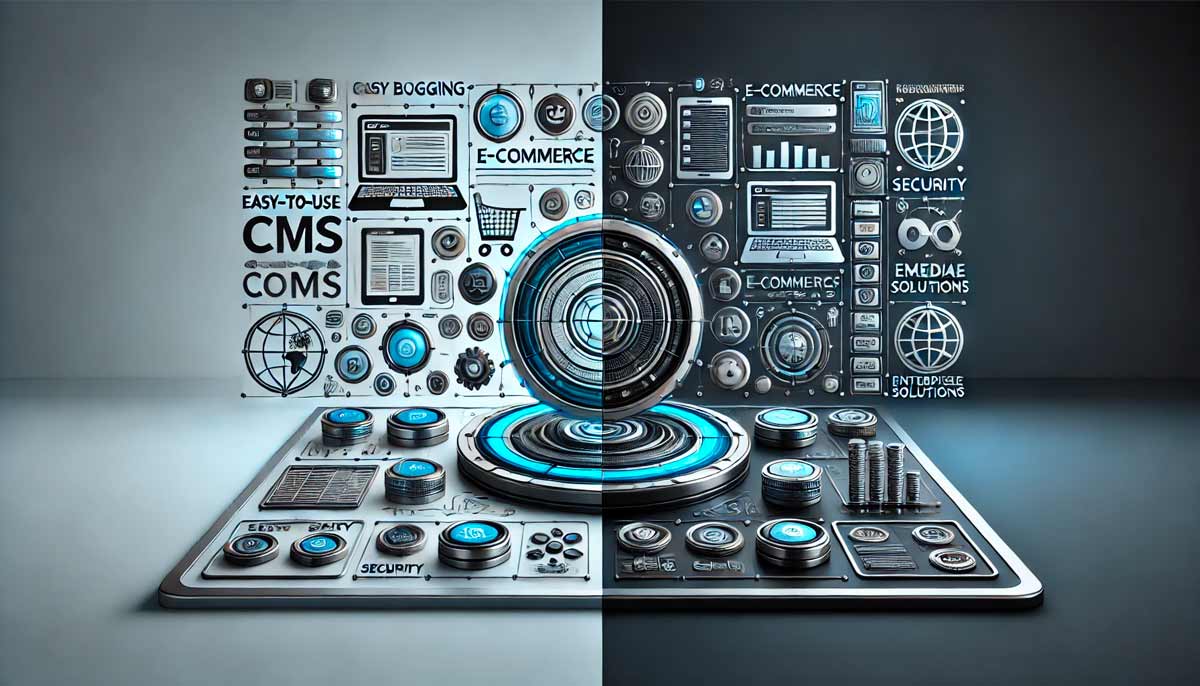WordPress vs Drupal: Which CMS to Choose?

When it comes to choosing a Content Management System (CMS), two of the most popular options are WordPress and Drupal. Both platforms offer powerful tools for building websites, but they differ in terms of target users, technologies used, and use cases. In this article, we will examine the main differences between WordPress and Drupal to help you determine which solution is best for your project.
Target Users
WordPress
WordPress is the most widely used CMS in the world and is an ideal choice for:
- Beginners and non-technical users: Its user-friendly interface and availability of thousands of themes and plugins make it accessible even to those without programming skills.
- Bloggers and small businesses: The ease of content management makes it ideal for blogs, business websites, and portfolios.
- E-commerce developers: Thanks to WooCommerce, WordPress is a popular choice for creating online stores.
- Marketing and media companies: Integration with SEO tools, social media, and analytics makes it perfect for digital marketing strategies.
Drupal
Drupal is a more advanced platform, suitable for:
- Experienced developers: Its flexibility and modularity make it ideal for those with programming knowledge who want greater control.
- Large enterprises and institutions: Many government agencies and complex organizations use Drupal for its high customization capabilities and security.
- Projects with specific needs: If your website requires advanced user management, customized workflows, or integration with external systems, Drupal is a great choice.
- High-traffic websites: Drupal is known for its high performance and scalability.
Technologies Used
WordPress
- Main Language: PHP
- Database: MySQL/MariaDB
- Architecture: Monolithic, based on themes and plugins
- Development Framework: Uses its own API for functionality extensions
- Security: Security largely depends on third-party plugins and maintenance practices
Drupal
- Main Language: PHP
- Database: MySQL, PostgreSQL, SQLite
- Architecture: Modular, based on hooks and API
- Development Framework: Based on Symfony, offering greater scalability and structure
- Security: More robust and managed directly within the core system
Which Platform Is Better?
There is no one-size-fits-all answer—it all depends on the type of project and the available skills.
| Feature | WordPress | Drupal |
|---|---|---|
| Ease of Use | ⭐⭐⭐⭐⭐ | ⭐⭐ |
| Customization | ⭐⭐⭐ | ⭐⭐⭐⭐⭐ |
| Security | ⭐⭐⭐ | ⭐⭐⭐⭐⭐ |
| Performance | ⭐⭐⭐ | ⭐⭐⭐⭐ |
| SEO | ⭐⭐⭐⭐⭐ | ⭐⭐⭐ |
| Scalability | ⭐⭐⭐ | ⭐⭐⭐⭐⭐ |
| Community and Support | ⭐⭐⭐⭐⭐ | ⭐⭐⭐⭐ |
Conclusion
If you need an easy-to-manage website with a wide range of ready-to-use themes and plugins, WordPress is the best choice. However, if you’re developing a complex website with high-security requirements and advanced customization needs, Drupal might be the ideal solution.
Choose the CMS that best fits your needs and technical skills to get the most out of your project!
